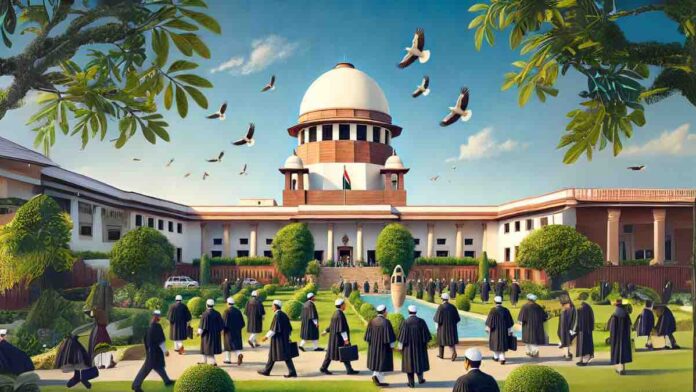In a significant ruling on the scope of Section 227 of the Code of Criminal Procedure (CrPC), the Supreme Court has emphasized that courts must carefully examine case materials to determine if there are sufficient grounds to proceed against an accused, rather than relying on mere suspicion or conjecture. The judgment was delivered by a
To Read More Please Subscribe to VIP Membership for Unlimited Access to All the Articles, Download Available Copies of Judgments/Order, Acess to Central/State Bare Acts, Advertisement Free Content, Access to More than 4000 Legal Drafts( Readymade Editable Formats of Suits, Petitions, Writs, Legal Notices, Divorce Petitions, 138 Notices, Bail Applications etc.) in Hindi and English.




